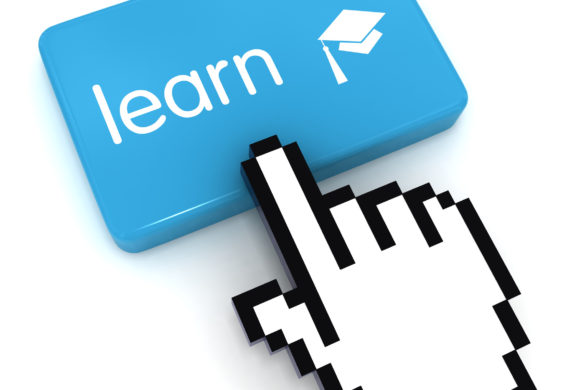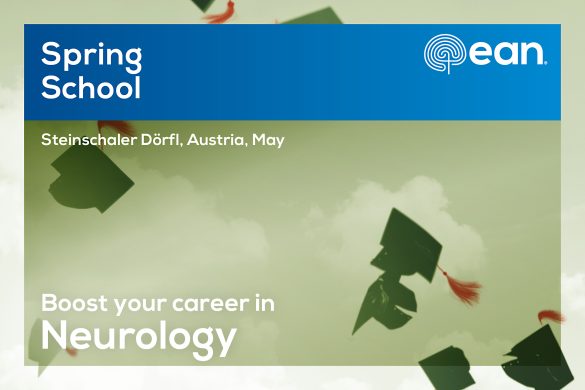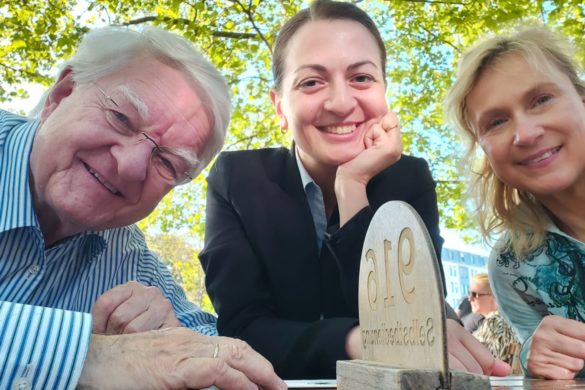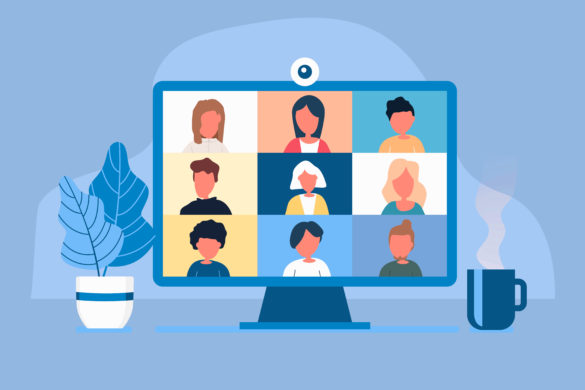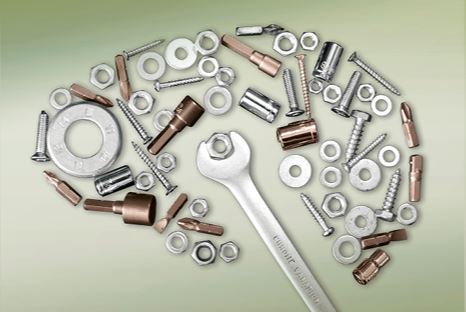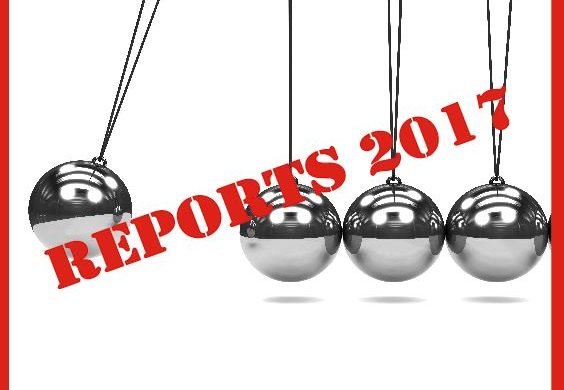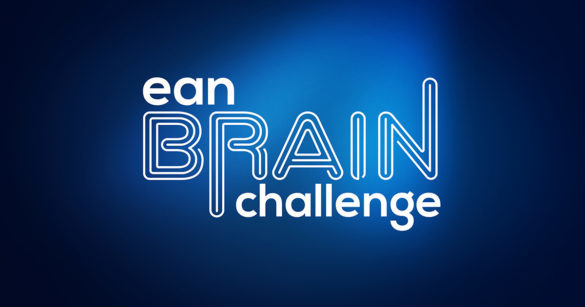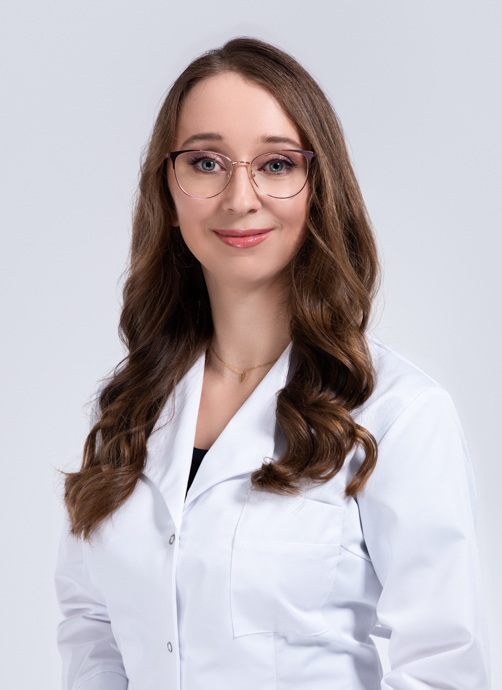
Nina Kožuch, Warsaw, Poland
Term of Fellowship: 2 November – 14 December 2021
Hosting department: Department of Neurology, Hopital de Hautepierre, Strasbourg, France
Supervisor: Prof. Edouard Hirsch
…
First of all, I would like to express my sincere gratitude to the European Academy of Neurology and to Professor Hirsch and his excellent team for giving me an opportunity to participate in the everyday work of the Epilepsy Department in Hopital de Hautepierre in Strasbourg.
My EAN Clinical Fellowship had been first scheduled for May 2020, however, the difficult time of pandemic made us postpone it to November-December 2021. The e-mail communication during the waiting period with both EAN and my hosting department in Strasbourg was impeccable and I am really grateful for the patience and encouragement that I received.
When I finally arrived in Strasbourg, I got a warm reception from Prof. Hirsch and I was immediately introduced to the whole team of the Epilepsy Department. During my six-week stay I was able to take part in all activities that were held at the department and in the outpatient clinic. Participating in outpatient consultations with Prof. Hirsch was a unique experience, not only because of a huge variety of epilepsy cases but also due to the professor’s hypothetico-deductive diagnostic method and his individual approach to each patient. I could see the whole spectrum of practical epileptology: from idiopathic generalised epilepsies via presurgical and postsurgical structural epilepsies to rare genetic disorders and non-epileptic seizures. It would not be possible in this report to recall all the interesting cases, but I would like to mention a 20-year-old patient with epilepsy, behavioral problems and a confirmed genetic disorder. His brain MRI was so far described as normal. During the consultation that I witnessed, Prof. Hirsch reanalyzed MRI scans and discovered polymicrogyria in the patient’s frontal lobes which could explain his condition. We also found the single case report from the previous year that described polymicrogyria in a patient with the same genetic disorder. Getting to the core of the disease was the most satisfying and educational part of my fellowship.
There were also debates about legal and ethical questions in epileptology, such as the possibility of driving a car or even piloting a plane. I have learned that each case is different and usually there is no simple answer when the patient’s future is at stake.
Furthermore, I assisted in patient rounds at the department and I was able to analyze video EEG recordings with the team. I observed the whole procedure of SEEG planning and management, with electrical stimulation and thermocoagulation. I am really grateful to Dr Paula Valentini-Hirsch for showing me this difficult procedure and trying to explain the steps for its proper interpretation. Thanks to Dr Valentini I was also able to study and explore benign EEG patterns such as SREDA. I am also grateful to Dr Vera Dinkelacker and Dr Carole Lambert for their time and the possibility of learning from them. Hopital de Hautepierre is a teaching hospital, so there were many interesting lectures, workshops and meetings concerning neurology. During my stay, I was strongly encouraged to participate in these encounters and I consider my training full and diverse.
And finally, the Epilepsy Department was closely cooperating with clinical genetics and paediatric neurologists and because of that I was also able to assist in paediatric consultations – I am very grateful to Dr De Saint Martin for the knowledge she shared with me and for her kindness. I am sure that it will help me to take better care of my adult patients.
To sum up, the clinical fellowship in Hopital de Hautepierre in Strasbourg was an excellent experience that has changed my approach to epileptology. I could see the combination of solid anatomical (semiology!) and electrophysiological background with modern technology and first of all, a human aspect of medicine, where patients’ needs are the most important. There is still a long way for me to go, but now I can better visualise my future goals.
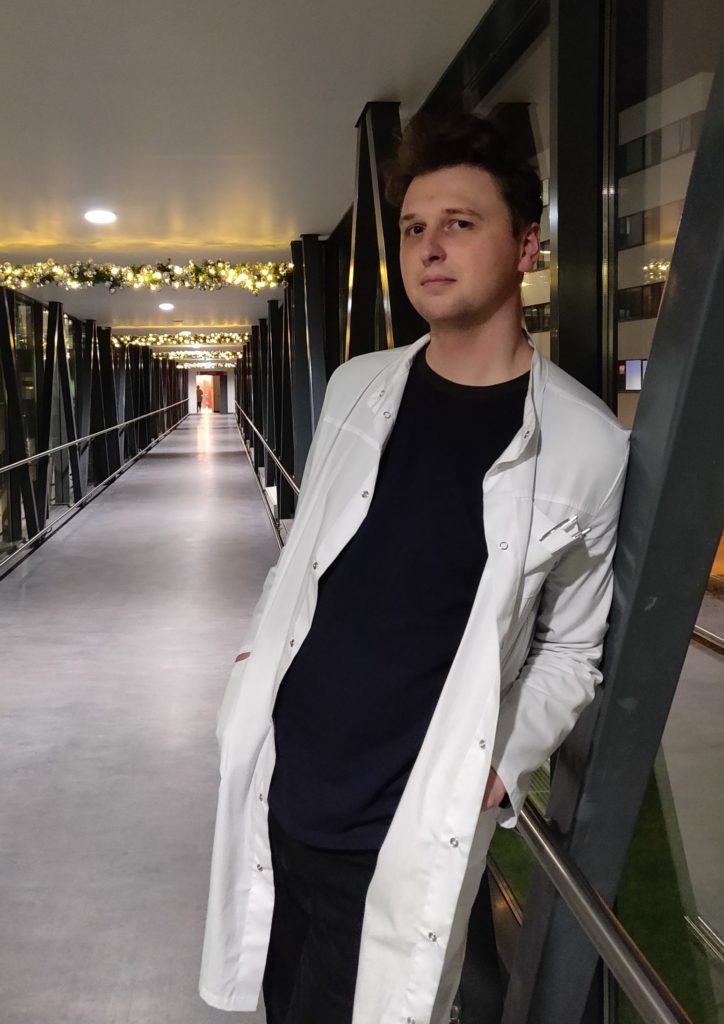
Mantas Vaišvilas, Vilnius, Lithuania
Term of Fellowship: 5 November – 20 December 2021
Hosting department: Hopital Neurologique Pierre Wertheimer, Centre de référence des Syndromes Neurologiques Paranéoplasiques et Encéphalites Autoimmunes, Lyon, France
Supervisor: Prof. Jérôme Honnorat
…
During my EAN Clinical Fellowship I participated in the following activities:
- Patient visitation
- Telemedical nationwide patient discussion and consultation
- Laboratory diagnostics of autoimmune central nervous system diseases
- Research activities
Patient visitation
Paraneoplastic encephalitis or autoimmune encephalitis patients, or patients of interest can be seen at the service everyday with attending doctors and residents during morning visitation. Review of relevant medical files such as clinical or paraclinical data and discussing with the attending physician is always available. Once a week there is a visitation with Prof. Jerome Honnorat to see and discuss paraneoplastic or autoimmune encephalitis patients. During the visitation, disease pathophysiology, clinical aspects and treatments are discussed. Patient-specific clinical scenarios and current hospitalisation issues are discussed separately (for example differential diagnosis of relapse with immunotherapy complications). Once a week there is a consultation with Prof. Honnorat in an ambulatory setting. Eight to ten patients are seen, of whom 4-5 present with paraneoplastic neurologic disorders and autoimmune encephalitis. After each patient, reasons for follow-up, current complaints and decisions on treatment are made and thoroughly explained.
Ten to fifteen individual patients of interest are seen per week and 40-50 total patients were seen during my clinical fellowship.
Telemedical nationwide patient discussion and consultation
Once every two weeks there is a nationwide tele-discussion and consultation of patients with suspected paraneoplastic neurological syndromes or autoimmune diseases from other hospitals that are being consulted by the reference centre. I participated in two tele-discussions. During a tele-discussion the clinical aspects are briefly presented, the current problems that the patient has, new ideas and treatment options or recommended tests are proposed. Patients discussed in total: 35.
Laboratory diagnostics of central nervous system diseases
Once or twice a week I visited the research laboratory to look at the rat brain immunofluorescence sections sent to the reference centre each week for confirmation from Lyon Sud, the hospital doing the majority of the testing with commercial kits, or by other centres in case of inconclusive results. I have gathered basic knowledge of immunofluorescent patterns of the majority of central nervous system antibodies identified to date. I have also visited Lyon Sud, the commercial testing laboratory and gathered information on commercial techniques used to identify some antibodies. I have discussed issues with diagnostics in Lithuania and things that can be improved. Total immunofluorescence patterns seen: 50-60.
Research activities
I have participated in a couple of individual research projects (not mandatorily) with guidance from the research team. I have broadened my theoretical understanding of pathophysiology of paraneoplastic and autoimmune encephalitis, knowledge of clinical criteria and was provided with articles or guidelines whenever I needed them. I would say I spent 50% of my time in clinical laboratory work and 50% of time in research.
Regarding living expenses, sadly, neither the university nor the hospital can offer living quarters, and renting apartments for this short time in France is nearly impossible, so I lived in an AirBNB. Total expenses for living in AirBNB from 3 November to 20 December were €2,214.19. Basic expenses were similar for a one-and-a-half month stay (without eating at expensive restaurants and mostly with food from the hospital and supermarket) including public transportation expenses estimated at €170 for the length of stay.
Summarising, I am very happy with the time I spent in Lyon. I feel that I have learned a lot, I made some important personal and professional connections that I believe will help me grow in the field of neuroimmunology in the upcoming future. I have nothing bad to say about this fellowship. It was more than I was expecting. I would definitely extend the length of stay or return if provided the opportunity.
…




